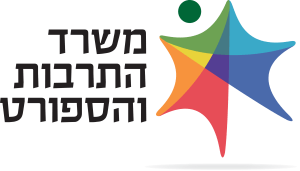Physiotherapist Alita Mor shares the professional challenges of working in competitive sports in Israel, and her personal reality as her husband serves on the frontlines.

Two and a half hours before kickoff, Alita Mor is already at the pitch. She sets up equipment, tapes players, and prepares them for the game. Unlike many other sports, in rugby, every player comes to her for some kind of treatment before stepping onto the field. “At any moment, a new challenge can arise,” she says of the constant readiness required during matches. “And after the match? That’s when the real work begins. It’s a long day,” she smiles.
Mor (45), born in Kibbutz Yizreel, has been the Israeli Rugby Union’s physiotherapist since 2008. She completed her undergraduate degree in physiotherapy at the University of Haifa and earned her master’s in sports physiotherapy from the University of Queensland in Australia. Her connection to rugby began in childhood: “In our kibbutz, Saturday mornings were for rugby, not football,” she recalls.

The Path to Physiotherapy
Her choice to pursue physiotherapy wasn’t accidental. “As a teenager, I was a dancer and faced physical challenges. Doctors told me to stop dancing, but physiotherapists said, ‘Let’s work and get you back on stage.’ That’s when I decided I wanted to be a physio who helps athletes return to sport.”
She began treating rugby players thanks to her brother, Assael Mor, who managed the Yizreel rugby club. “When I was a student, he pushed me to work with the team. I told him I didn’t know anything,” she laughs. “But he insisted: ‘Jump in. You won’t know unless you try.'”
Later, Raanan Penn, then head coach of the national team and a childhood friend from the kibbutz, invited her to join the national staff. “It took time to find my place. The Union didn’t have a permanent medical professional. There might have been a masseur here or there, but nothing consistent.”

The Demands of Competitive Sport
“Rugby is a holistic sport,” Mor explains. “Each player develops a broad range of abilities: running, coordination, pulling, pushing, footwork, and upper body strength. The game requires power and agility at the same time. You lift a player over 100kg in a lineout, push in a scrum, and coordinate with seven others. It also includes aerobic work with sprints and kicks. You use your entire body.”
Mor places a strong emphasis on professional medical oversight. “I enter the pitch when necessary and assess injuries. Like any competitive sport, situations arise that demand intervention.”
She shares a memory from early in her career: “At the Maccabiah Games years ago, I recognized a player showing signs of confusion after a collision. He couldn’t remember his position or what he was doing on the field. That can happen in contact sports. Quick identification and treatment are key. Over the years, I’ve gained a lot of experience in spotting such signs, and awareness among players and coaches has grown too. With proper preparation and support, rugby is a fantastic sport for developing both body and character.”



Fighting Spirit on the Field
Rugby players often push through pain. “In a Yizreel vs. Tel Aviv league match, one player insisted on staying in the game despite medical advice. He argued, saying ‘I can do it.’
I asked the coach to sub him off. He was angry and didn’t want to accept it,” she recalls.
Today, Mor sees improved awareness around player health. “Players now better understand the long-term implications of playing through injuries. Some step off willingly; others still resist. Athletes are naturally competitive, but health awareness is increasing. I introduced preventative taping, education on dos and don’ts, and encouraged a shift in mindset.”


Professional Decisions, Real Consequences
Sometimes Mor must make tough calls. She recalls an incident during the European U18 Championship: “One key player had a knee issue before the final.
After assessing him and consulting an orthopedist via video, we decided to strap him and test him on the pitch. The coach, parents, and I all discussed the risks and benefits.”
“His job was to push in the scrum,” she continues, “but he ended up running 20 meters and scoring a try. We won the final. That decision could have gone either way. I can advise, but the player makes the call with their family.”
A Worldview Through Rugby
Mor’s work has taken her across Europe. “I’ve been to Malta, Cyprus, France, the Netherlands, Denmark, Norway, Switzerland, Hungary, Slovenia, Greece, Bulgaria, Moldova, Romania, Croatia, Poland, Portugal, the Czech Republic, Austria, Luxembourg,” she lists with a smile. Her first stop in any country? “The pharmacy! I need to be ready with pain relief, allergy meds… I’m basically a mobile pharmacy.”



Preparation Is Key
Mor stresses the importance of preparation. “In sports physiotherapy, we know how to prevent injuries. Early training in strength and fitness enhances performance. If you eat, sleep, hydrate, and train right, you can reach your best.”
But rugby is a dynamic sport with unpredictable elements. “There are many variables you can’t control.
Still, young players should understand how to build strength progressively. The body adapts to high loads if you allow it. Don’t go all in at once—gradual progress is key.”
She also highlights diet and rest. “Proper nutrition is crucial. Consult a nutritionist. And sleep! Recovery is just as important as training. Muscles need to fatigue, but they also need to recover.”


Life in a Time of War
The past year brought a deeply personal challenge. Mor’s husband, Einan Grosser, was called up to reserve duty during the war that began on October 7. “He’s served nearly 200 days over three rounds. He’s in the infantry and just left for another 70-day tour.”
“It’s a tough period,” she admits. “Two weeks after the war began, I was meant to travel with Tel Aviv Heat. I said, ‘No way. Not while my husband is at war.'”
But Grosser encouraged her to go. “He wanted me to stay safe and occupied, not sitting at home worrying. It turned out to be the right call. Being surrounded by the players and staff helped me stay grounded. The Heat supported me completely. It saved me. Our base was in Cyprus, so I could fly home quickly. Once, he even picked me up directly from the base and drove me home.”
During his third deployment, the most intense yet, she found solace in a support network. “His friends and their partners became my support group. It was a major part of life.”
Mor opens up about another struggle: “So much attention is on families with children. We don’t have any. We tried before marriage but couldn’t. The hardest part is being alone. When you don’t have kids, it’s like you don’t exist.”

The Ongoing Challenge of Reserve Families
“My husband and his friends won’t be home for two months—over Passover, Memorial Day, Independence Day. This is his fourth deployment. Families are left behind. There’s a sense of fatigue. People stop paying attention. Wives of reservists have to shout louder to be heard. It’s the same people serving again and again. These are good, principled people. I could never ask him not to go. They are brothers in arms—the best of the best.”

What’s Next in Her Career
As part of World Rugby and Rugby Europe professional training, Mor is now on the instructor pathway for first aid in rugby. “Soon, I’ll teach my first course in Europe, then return to lead sessions in Israel for medical staff, coaches, referees, and club personnel.”
In the coming months, she will travel with the national team for international matches in Cyprus and Malta—a valuable opportunity for the squad to showcase its level of professionalism and growth.












